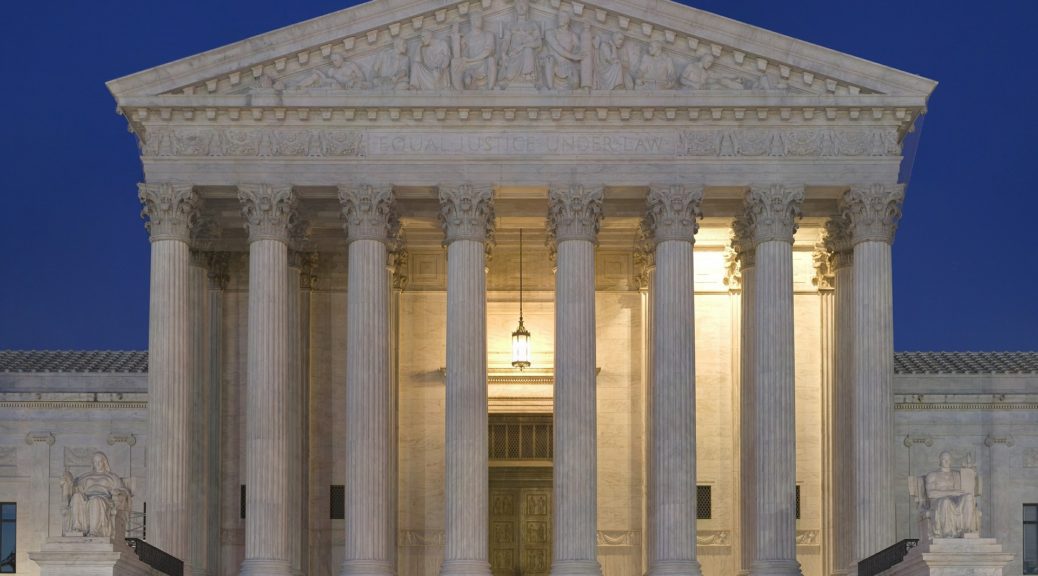It is commonplace to hear advertisements both on television and radio where some legal firm is looking for clients who may have been injured by some “bad drug” such as a blood thinner which may have caused a bleeding problem, a faulty medical device such as meshes used for hernia repair, or for patients who may have developed mesothelioma from exposure to asbestos. The more clients they can get to sign up with their firm, the larger the possible settlement will be. Since these lawyers are usually working on a contingency, their share of the settlement is likely to be very large.
A recent Supreme Court decision will now make it more difficult for these plaintiff attorneys to reap a single large payday; instead, they will have to litigate in each state where a group of patients may have been harmed or they will need to bring the suit where the manufacturer is incorporated or where it is headquartered.
In Bristol–Meyers Squibb Co. v. Superior Court of California, San Francisco County, Et. Al., a group of plaintiffs, many of whom were California residents and some who were allegedly injured in other states, brought suit claiming that they were injured by Plavix, a blood thinner. The legal issue centered on the State’s jurisdiction for the nonresident plaintiffs. Bristol-Meyers Squibb (BMS) tried to get the nonresidents’ claims removed from the suit because of lack of personal jurisdiction in the State. The Court ruled that there was enough activity by the defendant to allow for general jurisdiction by the California Courts. In order for general jurisdiction to attach, it must be where the defendant corporation is deemed to be at home. This could only be where the defendant is headquartered or incorporated. Since BMS was incorporated in Delaware and headquartered in New York, general jurisdiction should not have attached so the Court got this legal issue wrong and BMS appealed.
The Court of Appeals agreed with BMS and found that California did lack general jurisdiction but the Court went on to hold that California did have specific jurisdiction over the claims brought by the nonresident plaintiffs. In order to have specific jurisdiction, the defendant needs to have a connection with the forum and the specific claims at issue. Was the connection enough to force BMS to defend itself in California for the injuries claimed by plaintiffs who were not injured in California? Previous jurisprudence seemed to require that there must be a connection between the forum and the specific claims at issue. How could the claims of nonresidents be connected with BMS activities in California?
The California Supreme Court felt that BMS’s contacts with the State were enough to allow for specific jurisdiction over the nonresidents’ claims because these claims were similar to the residents’ claims and because BMS had sufficient activities in the State to support jurisdiction. They relied on the fact that BMS had contracted with a California company, Mckesson, to distribute Plavix nationally.
The United States Supreme Court took the case on appeal and they held that the California courts did not have this specific jurisdiction because the suit of the nonresidents did not “arise out of or relate to the defendant’s contacts with the forum.” The Court held that the contract with Mckesson was just not enough to force BMS to defend itself against the nonresident plaintiffs.
The decision in Bristol–Meyers Squibb does not say what will need to be done if there is more than one defendant each headquartered or incorporated in different States, but the logical conclusion is that there will need to be separate suits for each defendant. This may make comparative fault issues very difficult to decide and is likely to lead to crossclaims and counterclaims. This will likely increase the costs of litigating these types of cases.
In a dissenting opinion, Justice Sotomayer stated that this decision will make it much more difficult for plaintiffs to hold corporations accountable for conduct that is uniform around the country. She wrote that it “does not offend ‘traditional notions of fair play and substantial justice,’” International Shoe, 326 U.S., at 316, to permit plaintiffs to aggregate claims arising out of a single nationwide course of conduct in a single suit in a single State where some, but not all, were injured.” In essence, Sotomayer believes the decision will overturn the holding of International Shoe which allowed States to go after corporations that did substantial business in their State. However, the holding still allows the States to have jurisdiction, but they can only fight for those who were injured in their State. It looks like International Shoe will still have a role in this type of litigation.
With this decision, plaintiffs will only be able to bring a legal action in the State where they were injured or in the defendant’s state of incorporation or where the defendant is headquartered. This means that actions which could have been decided in one court may now have to be divided with each interested State litigating the same type of case in their own jurisdiction. This division of cases could lead to very different results and will significantly add to the costs of the firms who are bringing suit in the first place; court costs, expert witness fees, time spent by the lawyers dealing with each court, will be multiplied by the number of States in which there are plaintiffs alleging injury.
In general, plaintiff’s attorneys do not like to bring suit in the defendant’s home State as they feel those courts are more likely to be favorable to the corporation. It is common practice for plaintiffs to bring suit in a forum which they feel will be more receptive to their cause. Bristol–Meyers is likely to make forum shopping by plaintiffs more difficult.
Of course, plaintiffs can try to start a “class action” on a national level, but that has a whole set of rules that can be difficult to meet. This is especially evident when different plaintiffs are looking for different remedies or when there are different attorneys looking to represent different plaintiffs.
With the decision in Bristol–Meyers Squibb, plaintiffs will no longer be able to consolidate a legal action in a State in which only some of them have been injured. This will hold even if the plaintiffs who were injured in different States are suing the same company for the same type of conduct that is alleged in the forum State. In the future, the only type of mass action that will be allowed will have to be brought on the defendant’s home turf. This will be to the disadvantage of the plaintiffs who would prefer the case to be heard by a more favorable State court and will make it more difficult for the plaintiff who may have to deal with a jurisdiction far from his home State.
 by Darryl S. Weiman, M.D., J.D.
by Darryl S. Weiman, M.D., J.D.
Professor, Cardiothoracic Surgery, University of Tennessee Health Science Center and Chief of Surgery, VAMC Memphis, TN

